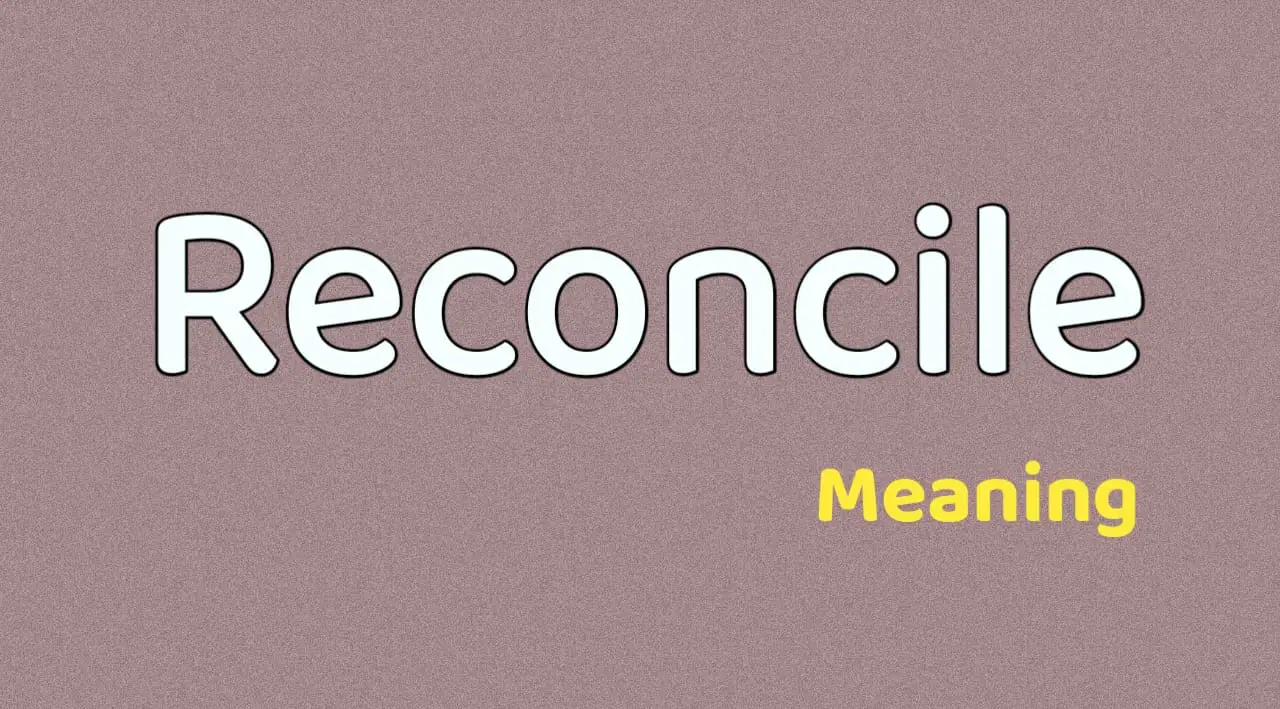Reconcile Meaning: Reconciliation, a term that holds profound significance in our lives, is often a bridge to mend the rifts in human relationships, societies, and even the financial world. In this article, we will delve into the meaning, historical context, types, and significance of reconciliation. Whether it’s in personal relationships, business transactions, or political diplomacy, understanding how to reconcile is key to fostering harmony and progress.

The Definition of Reconciliation
At its core, reconciliation refers to the act of restoring or reestablishing a state of balance and harmony after a period of discord or disagreement. It involves resolving differences, addressing conflicts, and reaching a state of agreement or mutual understanding.
Historical Perspective
Reconciliation has a long history that dates back to ancient civilizations. In ancient Greece, for instance, the concept of reconciliation played a crucial role in resolving disputes and maintaining the stability of the state. Throughout history, various cultures and societies have recognized the importance of reconciliation in maintaining peace and order.
Types of Reconciliation
Reconciliation takes on various forms, depending on the context in which it is applied. There are three primary types: personal reconciliation, financial reconciliation, and social reconciliation.
- Personal Reconciliation: In interpersonal relationships, personal reconciliation involves resolving conflicts and restoring trust between individuals.
- Financial Reconciliation: In the business world, financial reconciliation pertains to the process of aligning financial records and accounts to ensure accuracy and transparency.
- Social Reconciliation: In societies and communities, social reconciliation focuses on addressing conflicts, promoting understanding, and fostering unity.
The Process of Reconciliation
The process of reconciliation begins with identifying the need for reconciliation, followed by a series of steps designed to restore balance and harmony. The specific steps may vary depending on the type of reconciliation required.
Reconciliation in Daily Life
In our daily lives, reconciliation is an essential tool for conflict resolution. It enables individuals to heal emotional wounds, rebuild relationships, and move forward in a more positive and constructive manner.
Reconciliation in Business
In the business world, financial reconciliation is a critical practice. It ensures that financial transactions and records match, reducing errors, fraud, and mismanagement. Successful financial reconciliation promotes trust and accountability within an organization.
Reconciliation in Politics
Political reconciliation is vital for resolving conflicts between nations and factions. History provides us with examples of successful political reconciliations, such as the end of apartheid in South Africa and the Northern Ireland peace process.
Related : Numero Uno Meaning
Challenges in Achieving Reconciliation
Despite its significance, reconciliation often faces challenges. Factors such as deep-rooted animosity, lack of trust, and political interests can hinder the successful execution of reconciliation efforts.
The Role of Forgiveness
Forgiveness is closely intertwined with reconciliation. It involves letting go of resentment and anger, which is a fundamental step in the reconciliation process. Forgiving is often the key to healing and rebuilding relationships.
Cultural Aspects of Reconciliation
Different cultures approach reconciliation in various ways. Understanding these cultural differences is essential in fostering international relations and cross-cultural understanding.
Measuring the Success of Reconciliation
To gauge the success of reconciliation efforts, specific indicators are used. These indicators help assess whether the reconciliation process has truly achieved its intended goals.
Reconciliation’s Role in Healing
Reconciliation plays a crucial role in emotional and psychological healing. It helps individuals and communities overcome the scars of the past, enabling them to move forward with renewed hope.
Future Perspectives on Reconciliation
As the world evolves, so does the concept of reconciliation. Future perspectives on reconciliation will likely involve new approaches and technologies, aiming to foster even greater global harmony.
Conclusion
In conclusion, reconciliation is a fundamental concept that transcends personal, financial, and political boundaries. It is the key to mending the rifts in our world and fostering understanding, unity, and progress.






